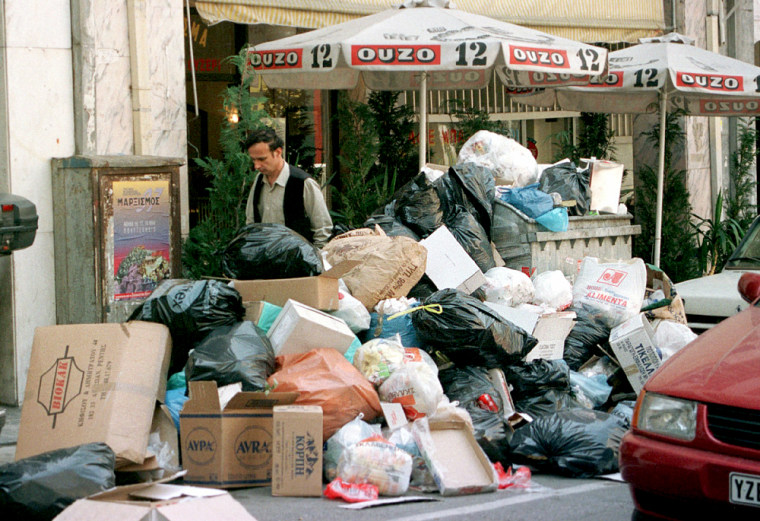Doctors do it. Journalists, too. Lawyers, cab drivers and even priests take part.
Strikes and labor protests in Greece come in just about every fashion. But a new one could be brewing: walkouts during the Summer Games that begin in two weeks.
Ambulance drivers, paramedics and hotel workers all announced ''warning'' work stoppages to demand Olympic bonuses and other pay hikes. The 11th-hour threats to the government and private employers are clear: Cough up the cash or risk embarrassing strikes during Athens' big moment.
The government is in an awkward spot.
It says it just can't afford any more bills with a runaway Olympic budget that could approach $12 billion. But it also doesn't want to issue emergency decrees that could trample on Greek workers' cherished right to protest.
''The strikes are justified,'' salesman Skefos Tsoukalis said. ''But it's an entirely inappropriate time when we are the center of the world's attention.''
Internet technician Marianthi Katsoulis, 28, is less sympathetic.
''Obviously they shouldn't be happening,'' she said. ''It's bad timing. It shouldn't be done before or during the games.''
The heart of the protests is the Olympic bonus. The government set the precedent by giving bonuses of up to $3,000 to police and other personnel providing Olympic security. Now, others are asking for the same — especially since the Aug. 13-29 Olympics have canceled the traditional vacation month for civil servants and others.
But some say the one-time payoffs are still not enough.
Unions cite statistics showing many Greek workers at the bottom of the Western European pay scale. Athens' hotel workers — paid a minimum of $588 monthly — are demanding their wages be doubled. Otherwise, labor leaders say, Olympic visitors might have to make their own beds and fend for themselves at hotels throughout the area.
Hotel workers have set their next strike for Thursday.
''If our proposals are not accepted, the workers will decide the next protest, which will probably be during the Olympics,'' said union representative Nikos Papageorgiou. He works at the Metropolitan Hotel, which will host officials from soccer's world governing body, FIFA, during the games.
An even scarier scenario for Olympic organizers — a transportation strike — was apparently averted this week with a government promise for higher pay.
Striking is considered a valued democratic right in Greece and governments, fearing political fallout, are loath to tamper with it. Police rarely intervene to stop near-daily protests and road blockades — even involving a few dozen workers — that cause hours of traffic congestion and road rage.
In recent months, journalists, doctors, lawyers and taxi drivers held strikes to demand raises and extra Olympic compensation. Past nationwide general strikes have been joined by Greek Orthodox priests, who are on the public payroll. In 2001, even Greek diplomats around the world stayed off the job to demand raises.
Police imposed restrictions on public rallies during the Olympics, but some protest groups have promised to defy them.
Labor unrest has added to a collection of last-minute Olympic gaffes: power outages, dead phone lines and even new Olympic road signs pointing the wrong way.
''No one doubts the fact that the Olympics mean more work,'' the Kathimerini daily newspaper commented. ''This can be easily covered by overtime pay without resorting to a blanket bonus for all.''
The newspaper called on unions and workers to show restraint, writing: ''Excessive, unfounded demands only cause harm.''
But appeals for a patriotic spirit have worn thin, and the Olympics have provided workers with unique leverage over their bosses and the government.
''Pay them,'' real estate agent Thomas Roussopoulos said. ''The government has eaten so much anyway, why should the peasants be the only ones to have national pride and work for nothing?''
Big interests, Roussopoulos said, ''have made millions, and everyone else is supposed to be happy with the experience and a free T-shirt.''
